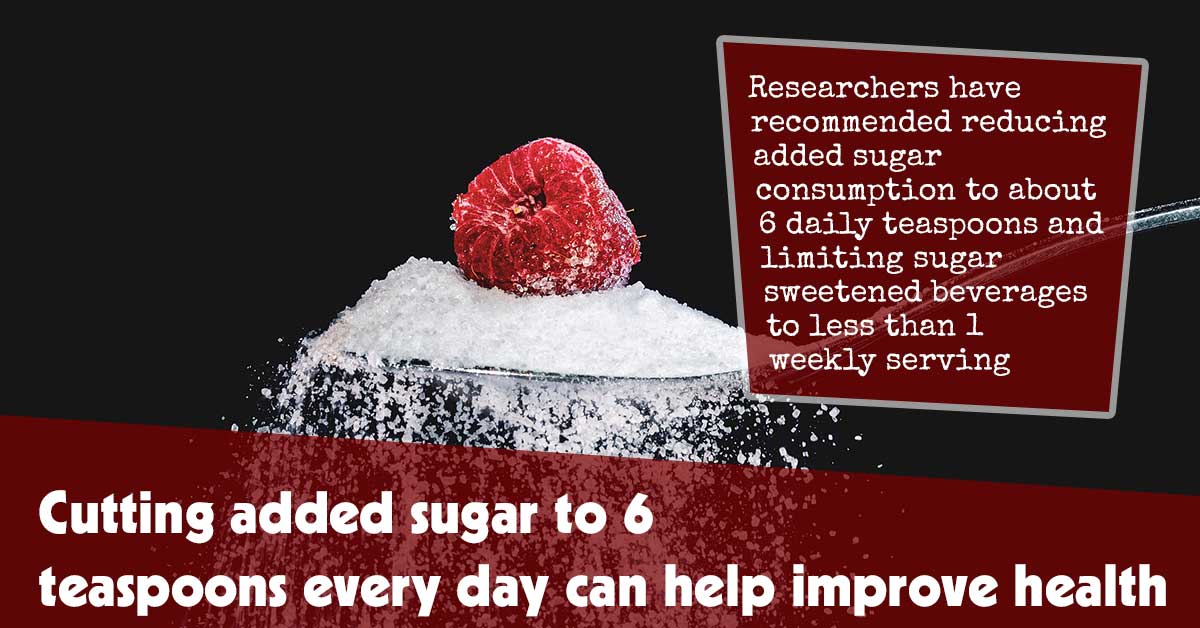After conducting a comprehensive review of the evidence, researchers have recommended reducing added sugar consumption to about 6 daily teaspoons and limiting sugar-sweetened beverages to less than 1 weekly serving.1✅ JOURNAL REFERENCE
DOI: 10.1136/bmj-2022-071609
Significant harmful connections were found between the consumption of sugar and 45 health outcomes, which included depression, some cancers, obesity, diabetes, asthma, heart disease, and death.
It’s commonly known that consuming too much sugar can negatively impact health and this has led the WHO and other health organizations to advise reducing added sugar intake to less than 10% of total daily energy consumption.
The researchers conducted a review to evaluate evidence quality, potential biases, and the validity of all studies available on the consumption of dietary sugar and health outcomes.
The review included 67 meta-analyses of observational studies and 6 meta-analyses of randomized controlled studies addressing 83 health outcomes.
The quality of the evidence was assessed and graded for each outcome as very low quality, low, moderate, or high.
Significant harmful connections were found between consumption of dietary sugar and 18 metabolic or endocrine outcomes which included obesity, gout, and diabetes; 10 cardiovascular outcomes which included stroke, heart attack, and hypertension; 7 cancer outcomes which included pancreatic, prostate, and breast cancer; as well as 10 other outcomes which included depression, tooth decay, asthma, and death.
Evidence of moderate quality suggested that consumption of sugar-sweetened beverages was significantly linked to greater body weight for highest vs. lowest intake, while any vs. no added sugar intake was linked to greater muscle and liver fat accumulation.
Evidence of low quality suggested that each 1 weekly serving increment consumption of sugar-sweetened beverages was linked to a 4% increase in gout risk, and each 250 mL/day increment consumption of sugar-sweetened beverages was linked to a 17% and 4% increase in coronary heart disease and death risk.
Evidence of low quality also indicated that every 25 g/day increment consumption of fructose was linked to a 22% higher pancreatic cancer risk.
No connections between dietary sugar consumption and any beneficial health outcomes was found, besides cardiovascular disease mortality, type 2 diabetes, total cholesterol, brain tumors, and glioma. The researchers however caution that these favorable connections aren’t supported by strong evidence.
These results indicate multiple health benefits by reducing sugar consumption to less than 25 g/day (about 6 daily teaspoons) and limiting sugar-sweetened beverage consumption to below 1 weekly serving (about 200-355 mL/week).



